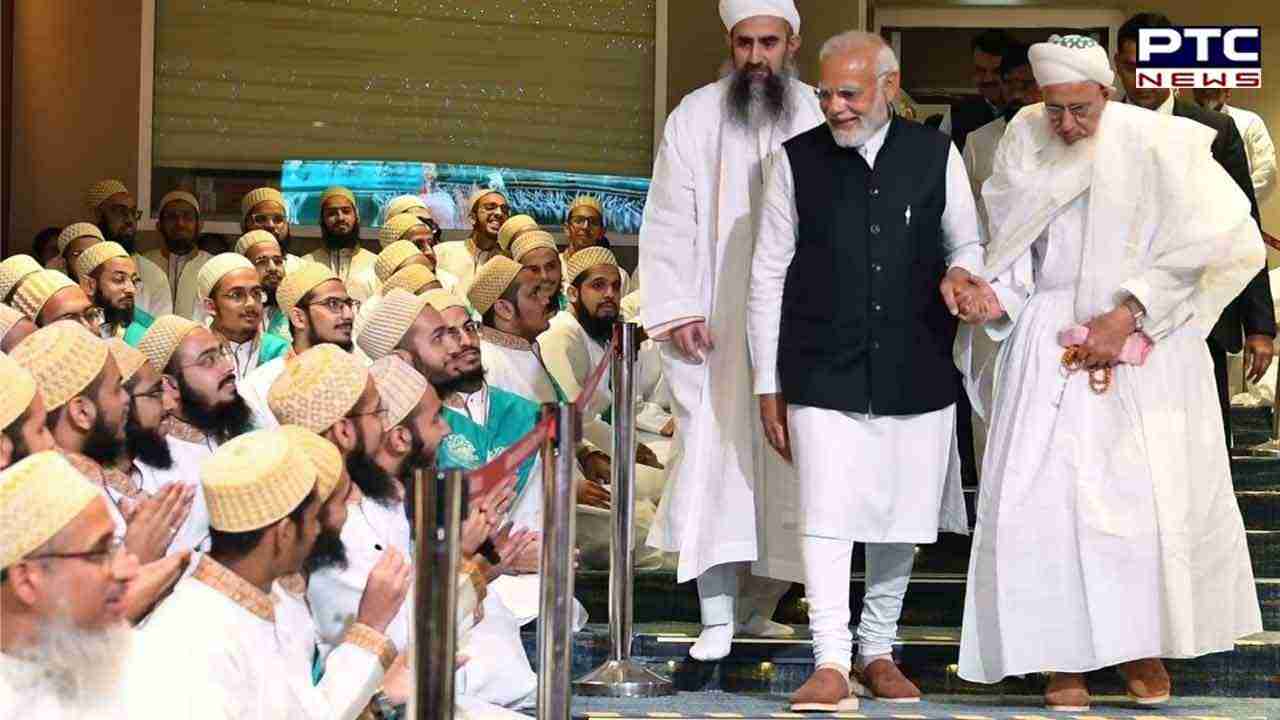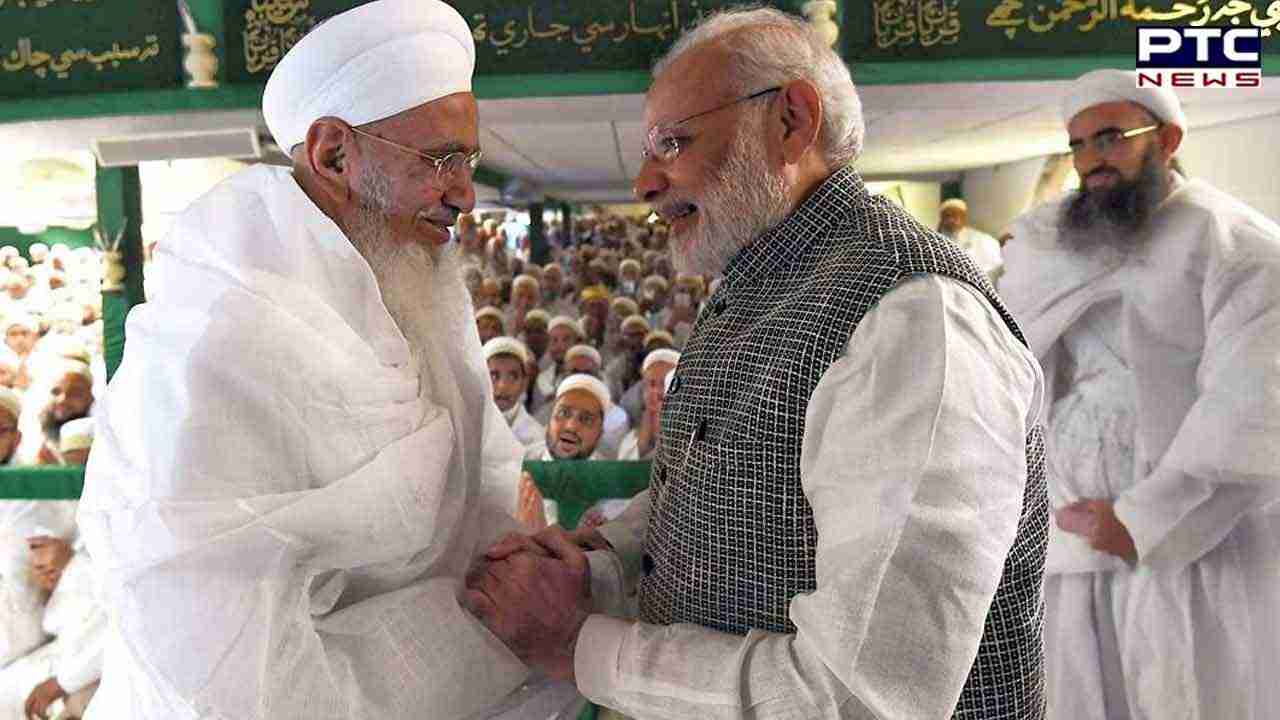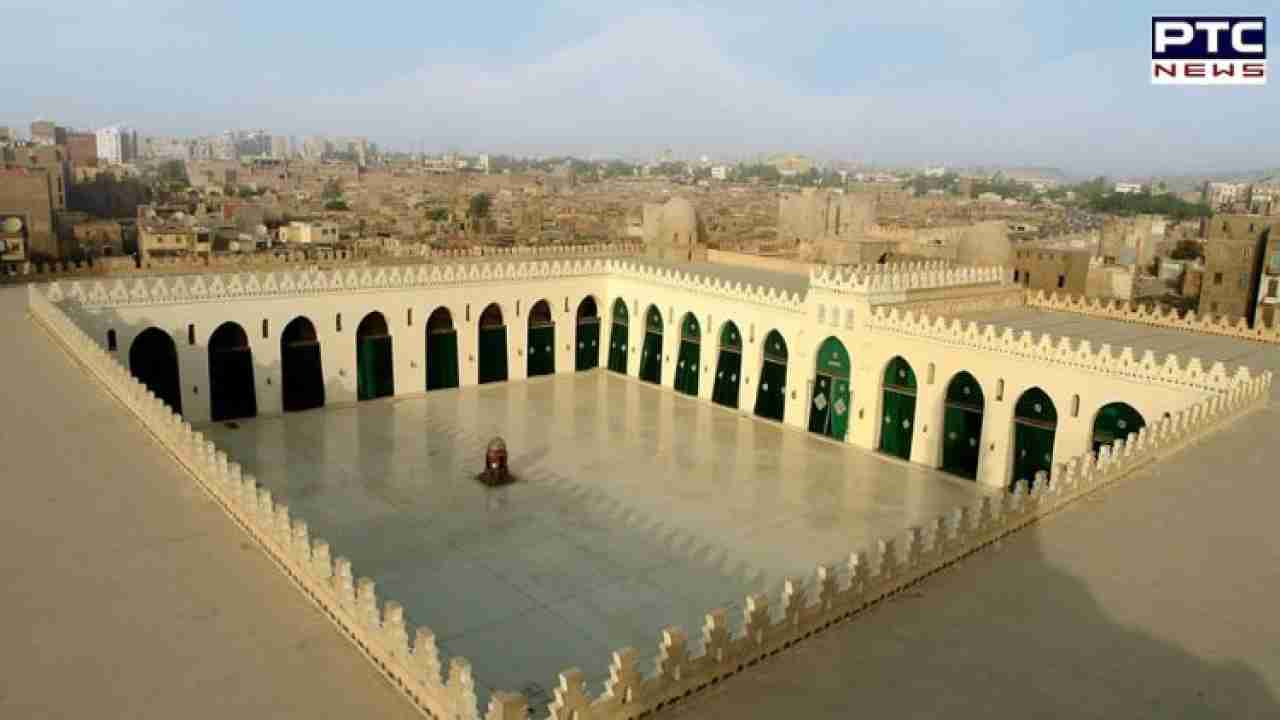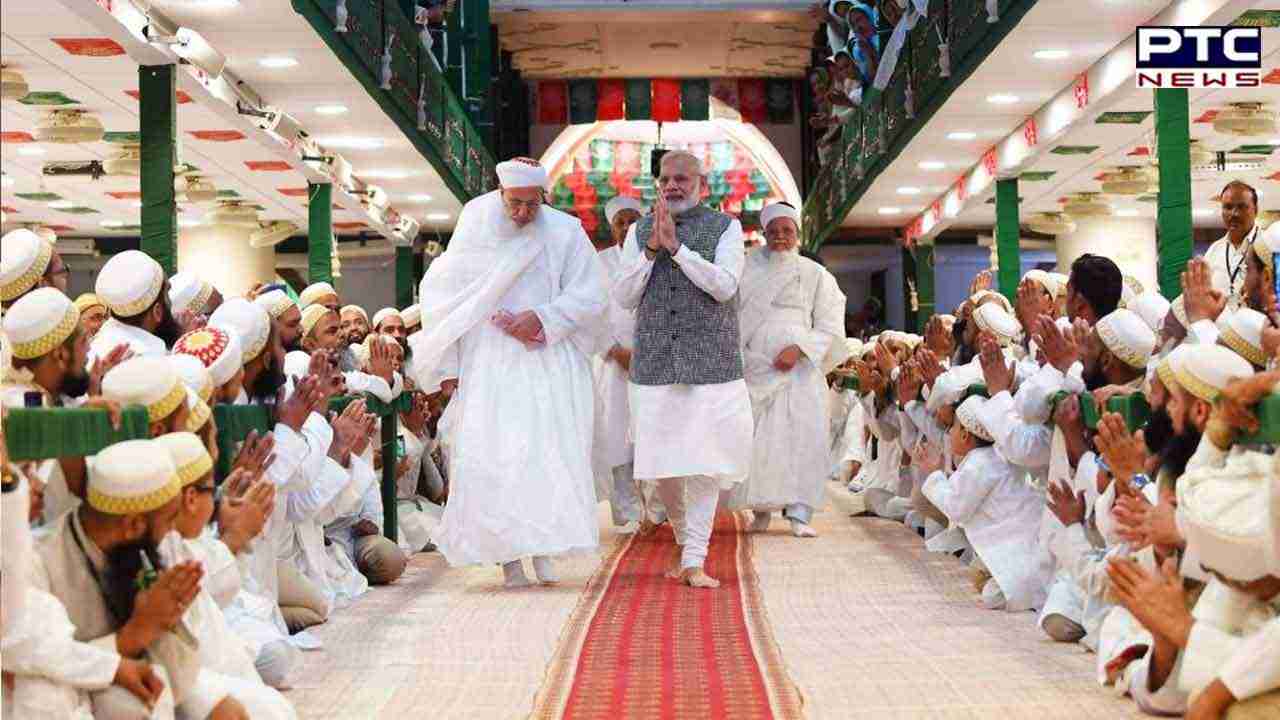

PM Modi's visit to Egypt mosque reverberates with India's Dawoodi Bohra muslims
New Delhi, June 23: Prime Minister Narendra Modi's recent visit to the historic Imam al-Hakim bi Amr Allah Mosque in Cairo, Egypt, carries a special meaning for a community of Muslims in India with whom the PM has maintained a long-standing and cordial relationship.
The Egyptian government's Ministry of Tourism and Antiquities stated that the mosque reopened its doors to the public after undergoing extensive renovations that spanned six years. The restoration project was part of a broader initiative aimed at promoting tourism to Cairo's Islamic sites.

Interestingly, the renovation efforts were co-financed by the Dawoodi Bohra community, the same community for which PM Modi has expressed gratitude in the past for their support during his tenure as the Chief Minister of Gujarat. He commended them for their patriotism, adherence to the law, and commitment to peace. The mosque holds deep cultural significance for the Dawoodi Bohra community residing in Cairo.
Dawoodi Bohras: A diverse community with rich heritage
The Dawoodi Bohras are followers of the Fatimi Ismaili Tayyibi school of thought, tracing their distinctive heritage back to Egypt before eventually settling in India. Their journey began in Egypt and later shifted to Yemen, but it was in the 11th century that they established a strong presence in India.
The seat of the sect was moved from Yemen to Sidhpur in Gujarat's Patan district in 1539, as the community had grown significantly in India. Even today, Sidhpur boasts iconic ancestral havelis (homes) that belong to the Dawoodi Bohra community, serving as a testament to their historical roots.
The Dawoodi Bohras are recognized for their unique attire. Men of the community traditionally wear white garments paired with golden caps, while the women are known for their vibrant and colorful burqas, setting them apart from other Muslim communities where black burqas are more common.

The Bohra community consists of two principal groups: a merchant-class Shia majority and a Sunni Bohra minority, primarily engaged in agriculture and farming. In India alone, there are approximately 500,000 Bohras, and a similar number resides in various parts of the world. The name "Bohra" is derived from the Gujarati word "vahaurau," which means "to trade," reflecting the historical association of the community with business and commerce.
Although Dawoodi Bohras are spread across different states, including Gujarat, Maharashtra, and Madhya Pradesh, Surat holds a significant place as their base. The community's presence in these regions has contributed to their cultural and economic prominence, showcasing their diversity and influence.
PM Modi's Enduring Connection with the Dawoodi Bohra Community
Prime Minister Narendra Modi's association with the Dawoodi Bohra community extends back to his tenure as the Chief Minister of Gujarat, long before assuming the role of Prime Minister. The bond between PM Modi and the Dawoodi Bohras has been marked by warmth and mutual respect.
In 2011, as Gujarat Chief Minister, he invited the community to commemorate the 100th birthday of Syedna Burhanuddin, the then religious head of the Dawoodi Bohra Community. Following Syedna Burhanuddin's demise in 2014, PM Modi personally visited Mumbai to offer his condolences to his son and successor, Syedna Mufaddal Saifuddin.
_0cc5d41bcefccc1e98f4a379f9c1485e_1280X720.webp)
In 2015, PM Modi paid another visit to Syedna Mufaddal Saifuddin, with whom he shares a cordial relationship. During the inauguration of the new campus of Aljamea-tus-Saifiyah (The Saifee Academy) in Mumbai's Marol, the Prime Minister expressed his sentiments, stating that he considers himself a part of their family. In 2016, Syedna Mufaddal Saifuddin called upon PM Modi, who fondly reminisced about his connections with four generations of Dawoodi Bohra religious leaders.
PM Modi has consistently praised the community for their business acumen and social reform initiatives. During a diaspora event, he commended their efforts in tackling issues such as malnutrition and water scarcity, recalling their historical association with Mahatma Gandhi, who was hosted by the community after his iconic Dandi March.
The Prime Minister has also engaged with Dawoodi Bohra delegations on various occasions, including during his visit to Bangladesh. In 2018, he addressed the Ashara Mubaraka, the Commemoration of the Martyrdom of Imam Hussain (SA), organized by the Dawoodi Bohra community, at Indore's Saifee mosque. The event witnessed participation from over one lakh members of the community, further strengthening the bond between PM Modi and the Dawoodi Bohras.
Dawoodi Bohras: A Constant Presence in PM Modi's Diaspora Engagements
The Dawoodi Bohra community has consistently played a significant role in Prime Minister Narendra Modi's diaspora events, showcasing their unwavering support. Their presence was notable during several overseas gatherings in 2014, shortly after PM Modi assumed office as Prime Minister.
A large number of Dawoodi Bohras attended events such as the iconic gathering at Madison Square Garden in New York and the address held at the Olympic Park Arena in Sydney. Their active participation demonstrated their solidarity with PM Modi and his vision.

The Dawoodi Bohras have not only shown their support but have also emphasized their deep-rooted presence in India, spanning centuries. In response to the Prime Minister's admiration for their community, they have proudly reaffirmed their commitment to peaceful coexistence within the country. The Dawoodi Bohras' longstanding history of living harmoniously in India has been an important aspect reiterated by the community, highlighting their enduring contribution to the nation.
Navigating Challenges Within the Community
Despite their contributions and resilience, the Dawoodi Bohra community faces its fair share of internal challenges. One prominent issue is the practice of genital mutilation, which has been a subject of contention.
Activists, including women from within the community, have been at the forefront of challenging this practice, seeking to end the tradition prevalent in certain segments of the community. Their efforts have sparked a crucial dialogue about the rights and well-being of young girls and the importance of safeguarding their physical integrity.
Another significant legal challenge arose when the Supreme Court of India referred a series of petitions to a larger bench, questioning the authority of Dawoodi Bohra community leaders to excommunicate their members. Earlier this year, the apex court recognised the need for a comprehensive examination of this matter, thereby acknowledging the complexity surrounding the exercise of power and the consequences of excommunication within the community.

The ultimate authority of the Syedna, the religious leader of the Dawoodi Bohras, remains a central aspect, and members are expected to pledge unwavering loyalty to him until death. However, dissenting voices within the community have lodged appeals against this practice, seeking a more inclusive and progressive approach.
These challenges reflect the evolving dynamics within the Dawoodi Bohra community. As with any community, differing perspectives and aspirations emerge, prompting internal debates and calls for change. The ongoing discussions and legal interventions signify a growing consciousness among community members, fostering an environment for introspection and reform. It remains to be seen how these issues will be addressed and resolved, potentially shaping the future trajectory of the community.
- With inputs from agencies
